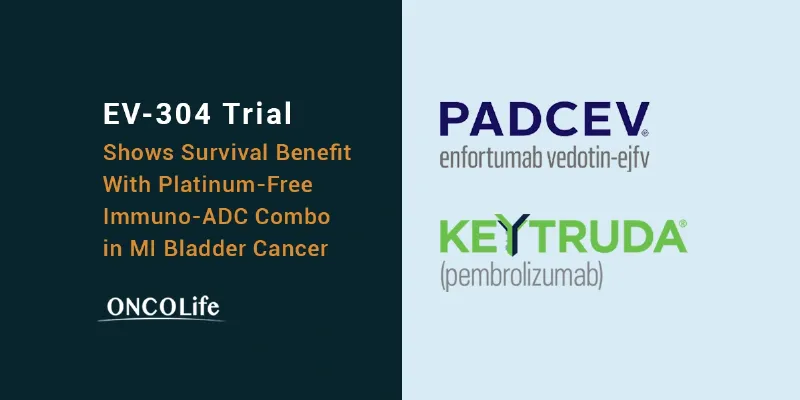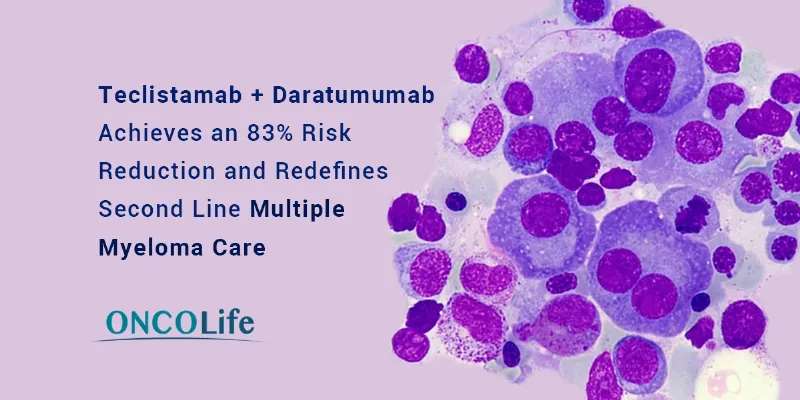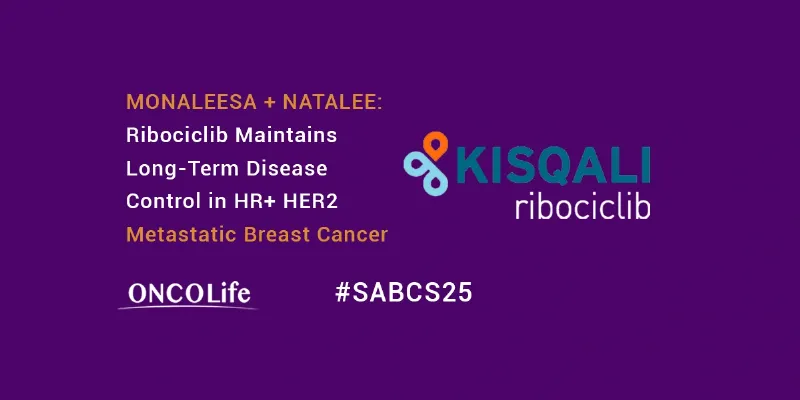Trodelvy and Keytruda Combination Marks Breakthrough in mTN-Breast Cancer

The Phase 3 ASCENT-04 clinical trial has demonstrated that combining the antibody-drug conjugate Trodelvy® with the immunotherapy Keytruda® significantly improves progression-free survival in patients with metastatic triple-negative breast cancer (mTNBC, PD-L1+).
Gilead Sciences announced positive results from the Phase 3 ASCENT-04/KEYNOTE-D19 study, demonstrating that Trodelvy® (sacituzumab govitecan-hziy) plus Keytruda® (pembrolizumab) significantly improved progression-free survival (PFS) in patients with unresectable, locally advanced, or metastatic triple-negative breast cancer (mTNBC) whose tumors express PD-L1 (CPS \u2265 10). The study met its primary endpoint, showing a statistically significant and clinically meaningful improvement in PFS.
The safety profile observed with the Trodelvy-Keytruda combination was consistent with the known profiles of each medication, showing no new or unexpected safety concerns.
“These findings are the first to show the transformative potential of an antibody-drug conjugate combined with an immuno-oncology agent in early treatment lines of metastatic breast cancer. For patients with this difficult to treat type of breast cancer, these results potentially offer a new pathway that may redefine their treatment options,” said Dr. Dietmar Berger, Chief Medical Officer at Gilead Sciences.
The ASCENT-04 study specifically enrolled patients who had not previously received treatment for metastatic or locally advanced inoperable TNBC and whose tumors expressed high levels of PD-L1 (CPS ≥10). Patients were randomly assigned either the new combination therapy—Trodelvy with Keytruda—or the current standard treatment, Keytruda combined with chemotherapy.
Dr. Sara Tolaney, the study's lead investigator from Dana-Farber Cancer Institute, emphasized the significance of the findings, stating, “For patients with metastatic triple-negative breast cancer, there is a critical need for more effective treatment options. These data suggest that the combination of sacituzumab govitecan-hziy and pembrolizumab may offer a new treatment approach—bringing together a potent antibody drug conjugate with immunotherapy to improve outcomes for patients.”
Trodelvy has already proven effective as a second-line or later treatment for metastatic breast cancer and has been used globally in over 50,000 patients across about 50 countries. Its established effectiveness makes these recent results particularly encouraging for the oncology community.
The ASCENT-04 trial results may pave the way for broader use of Trodelvy in treating various cancer types expressing Trop-2. Several ongoing studies are exploring its potential in early-stage TNBC, hormone receptor-positive breast cancer, and other cancers such as lung and gynecological malignancies.
Triple-negative breast cancer (TNBC), known for its aggressive nature and limited treatment options, represents about 15% of breast cancer cases. This subtype disproportionately impacts younger women, especially those from Black and Hispanic communities. The prognosis for patients diagnosed with metastatic TNBC is notably poorer, with a five-year survival rate of only about 12%, highlighting a critical need for more effective treatments.
Currently, Gilead has three ongoing Phase 3 studies investigating Trodelvy across HER2- (IHC 0, IHC 1+ or IHC 2+/ISH–) mBC, including the upcoming ASCENT-03 pivotal trial in 1L mTNBC patients who are not candidates for PD-L1 based therapy, the ASCENT-05 pivotal trial in patients with early-stage TNBC (eTNBC), and the ASCENT-07 pivotal trial in patients with HR+/HER2- mBC who have received endocrine therapy. Trodelvy is also being investigated in additional Phase 3 studies in other disease settings, including in lung and gynecological cancers.
About the ASCENT-04/KEYNOTE-D19 Study:
The ASCENT-04/KEYNOTE-D19 study, launched in 2021 through a collaboration between Gilead and Merck & Co., is a global Phase 3 trial evaluating the combination of sacituzumab govitecan and pembrolizumab for patients with previously untreated, inoperable or metastatic triple-negative breast cancer (TNBC) with PD-L1 expression. A total of 443 patients were randomized to receive either the new combination or chemotherapy with pembrolizumab. The study’s primary focus is progression-free survival, with secondary measures including overall survival, response rates, patient-reported outcomes, and safety.











Comments
No Comments Yet!